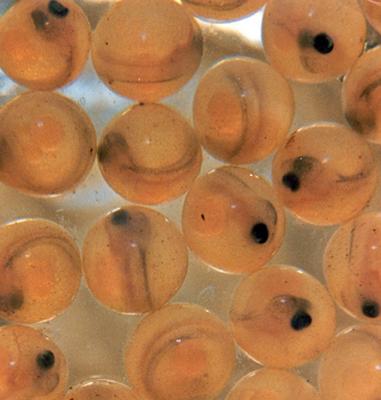forum
library
tutorial
contact

Chile's Salmon Industry Accused
of Worker Abuse as Production Grows
by Jen Sotolongo
The Santiago Times, June 21, 2006
|
the film forum library tutorial contact |

|
Chile's Salmon Industry Accused
by Jen Sotolongo
|
Salmon Exporters Getting Richer While Employee Treatment Worsens
 Socialist Party Dep. Fidel Espinoza last week blasted Chile's fresh salmon export industry, alleging widespread worker abuse and unsafe working conditions. According to Espinoza, at least one salmon farm diver dies every month for lack of proper diving equipment.
Socialist Party Dep. Fidel Espinoza last week blasted Chile's fresh salmon export industry, alleging widespread worker abuse and unsafe working conditions. According to Espinoza, at least one salmon farm diver dies every month for lack of proper diving equipment.
The senator's broadside comes as the industry is consolidating itself as a powerhouse in salmon production. Chile's fresh salmon industry sold US$1.7 billion of salmon in 2005, making it the world's second most important salmon producer, hard on the heels of industry leader Norway. Chile produced 37.6 percent of the world's farmed salmon in 2005; Norway 38.7 percent.
A recent salmon industry report found that salmon exports represent 20.2 percent of all of Chile's agriculture exports, and that the salmon industry will soon outstrip Chile's fresh fruit industry, which exported US$2.1 billion in fresh fruit in 2005. World demand for salmon continues to grow, said the report, making Chile well situated to fill the demand: Chile's salmon exports are expected to top 30 tons within the next few years.
Still, questions raised by political leaders like Dep. Espinoza dog the industry.
Christian Gutierrez, economist at OCEANA, the international NGO with its Southern Hemisphere office based in Santiago, insisted that Chile's salmon industry is plagued by accidents - especially diving accidents - and argues that salmon farms have "not really helped economic and social development in the areas it is taking place" (Sept. 1, 2005).
Gutierrez noted that most salmon-farming companies outsource or subcontract much of their production work to increase efficiency and reduce labor costs. But these corporate practices, he said, often mean unfortunate tradeoffs for workers.
Subcontracted workers in the fish farming industry are paid 70 percent less than contracted workers, according to Gutierrez, who said that an increasing percentage of fish-farm workers - currently 60 percent - are employed by subcontractors rather than the parent companies.
OCEANA reported that divers responsible for cleaning the salmon cages often descend to depths of between 42 and 65 meters, despite authorization for only 20 meters.
The workers, who are not unionized, also stay underwater for longer-than-authorized periods of time and lack adequate knowledge of the salmon industry technology, says OCEANA.
"We have records demonstrating that shellfish divers who work in cultivation centers are diving down to depths of 42 meters, and other records that show depths of 65 meters being reached," said Patricio Brevis of Mariscope Chilena, an authorized marine surveying firm, in a public statement.
The statement also points to additional structural problems - salmon growth centers lack emergency contingency plans, coordination with health services, and are beset by poor hygiene and security standards.
The extreme demands made on divers is due to necessity said Brevis. "For example, if the cultivation center's net breaks, it has to be repaired as soon as possible to keep the fish from escaping. They are asked, or they take it upon themselves, to dive to these depths outside of the security norms basically for fear of losing their jobs."
learn more on topics covered in the film
see the video
read the script
learn the songs
discussion forum
